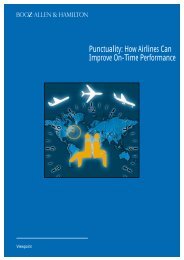The sentence
The sentence
The sentence
Create successful ePaper yourself
Turn your PDF publications into a flip-book with our unique Google optimized e-Paper software.
Direct and indirect speech<br />
A. Direct speech<br />
Quotation marks and other punctuation marks<br />
We use the term direct speech to describe the way we represent the spoken word in<br />
writing. We punctuate the four types of <strong>sentence</strong> by putting quotation marks (also called<br />
inverted commas) outside all other punctuation marks, such as commas (,), full stops (.), and<br />
exclamation marks (!). Quotation marks may be single (‘…’) or double (“…”). We put them at<br />
the beginning and end of each quotation, high above the base-line. We don’t us dashes *_* or<br />
chevrons ** to punctuate direct speech. We use only one question mark or exclamation<br />
mark at the end of a question or exclamation:<br />
Statement: ‘<strong>The</strong> shops close at 7 tonight.’ or: “<strong>The</strong> shops close at 7 tonight.”<br />
Question: ‘Do the shops close at 7 tonight?’ or: “Do the shops close at 7 tonight?”<br />
Command: ‘Shut the window!’ or: “Shut the window!”<br />
Exclamation: ‘What a slow train this is!’ or: “What a slow train this is!”<br />
Quotation marks and ‘reporting verbs’<br />
1. When we show direct speech in writing, we often use reporting verbs like say, tell and ask.<br />
What is said, plus reporting verb and its subject, is a whole unit of meaning.<br />
2. When the subject + reporting verb comes at the beginning of a <strong>sentence</strong>, we put a comma<br />
after the reporting verb (sometimes a colon (:) in American English) and we begin the<br />
quotation with a capital letter:<br />
John said, ‘We’re late. (Not *John said, ‘we’re late.’*)<br />
3. When the subject + reporting verb comes after what is said, we put a comma before the<br />
second quotation mark:<br />
‘We’re late,’ John said. Or: ‘We’re late,’ he said. (Not *’We’re late’, John said.*)<br />
4. If we end a quotation with a question mark or an exclamation mark, we do not use a comma<br />
as well:<br />
‘Where can I get a taxi?’ John asked. (Not *taxi?*) ‘What a surprise!’ John exclaimed.<br />
5. Subject + verb can come in the middle of a quotation-<strong>sentence</strong>:<br />
‘Where, in this wretched town,’ John asked, ‘can I get a taxi?’ (Not *… asked, ‘Can*)<br />
<strong>The</strong> second part of the quotation does not begin with a capital letter because it is not a<br />
separate <strong>sentence</strong>.<br />
‘Quote within a quote’<br />
1. If we are quoting someone else’s words inside a quotation, we use a second set of quotation<br />
marks. If we have used single quotation marks on the ‘outside’, we use double ones on the<br />
‘inside’ and vice-versa. <strong>The</strong> inside quotation has its own punctuation, distinct from the rest<br />
of the <strong>sentence</strong>:<br />
Ann said, ‘Just as I was leaving, a voice shouted, “Stop!”<br />
‘What do you mean, “Are you all right? ” ?’ Ann asked.<br />
2. We can also use a second set of quotation marks when we mention the title of e.g. a book<br />
or a film: ‘How long did it take you to read “War and Peace”?’ I asked.<br />
93




